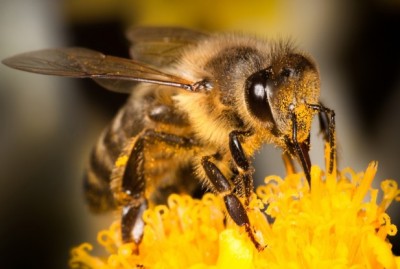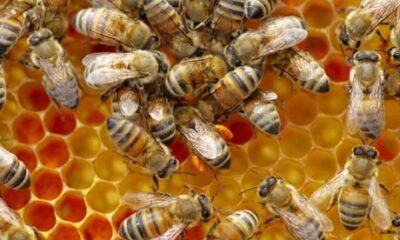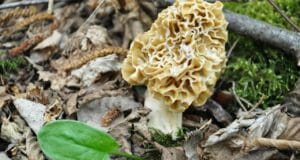
Image source: redborbit
A landmark Harvard study says that neonicotinoids – the dominant ingredient found in many popular insecticides which treats much of the corn in the US — are to blame for colony collapse disorder in the honeybee population.
The Environmental Protection Agency (EPA) and the United States Department of Agriculture (USDA) have long claimed that insecticides containing neonicotinoids are safe, but the Harvard study found otherwise.
Neonicotinoids were first developed by Bayer. In the study, approximately half of the bee colonies which had been exposed to neonicotiniods died.
Honeybees provide pollination for 70 percent of the food we grow to eat. Bees don’t pollinate corn, but the pollen drifts elsewhere where it makes contact with bees.
“We demonstrated that neonicotinoids are highly likely to be responsible for triggering ‘colony collapse disorder’ in honeybee hives that were healthy prior to the arrival of winter,” said Harvard School of Public Health expert Chensheng Lu.
This year alone, upwards of 70 percent of beehives in colder parts of the country did not survive the harsh winter, Off The Grid News recently reported. Harvard researchers say colder winters only exacerbate the problem from neonicotinoids.
The Harvard honeybee study was published in the Bulletin of Insectology. The university scientists studied 18 honeybee colonies in Massachusetts for about one year, and reviewed how even low doses of two types of neonicotinoids — clothianidin and imidacloprid — impacted healthy honeybee hives over the winter. They placed the hives in three locations, and at each spot gave four hives high fructose corn syrup laced with neonicotinoids and left two hives untouched. The result: Half the hives that came into contact with the insecticide suffered colony collapse disorder. And the bees that were left were not doing great. Among the control group that did not come into contact with the neonicotinoid, only one out of six hives was lost, and even in that instance, the bees did not leave the hive. Researchers blamed that lost hive on a parasite.
The study “reinforced the conclusion that sub-lethal exposure to neonicotinoids is the likely main culprit for the occurrence of CCD,” the study said.
The Ultimate Guide to Keeping Stronger Colonies and Healthier, More Productive Bees

Image source: Guardian
Other countries faced with a drastic loss of honeybees appear to be taking the matter far more seriously than the United States. Last December, the European Union voted to ban the use of neonicotinoids for two years, as Off The Grid News reported. The European Food Safety Authority (EFSA) report maintained that neonicotinoids should be restricted because the chemicals “may affect the developing human nervous system of children.”
A host of factors other than neonicotiniods have also been widely studied as a possible cause for the disappearance of honeybees. Some of the factors frequently studied include poor nutrition, parasites, disease, and stress brought on by being transported around the nation to pollinate various orchards. A significant number of scientists have subscribed to the theory that any combination of the noted factors when also exposed to chemical pesticides could be causing Colony Collapse Disorder.
The new honeybee study basically replicates a similar experiment Harvard researchers conducted in 2010. During that study, the team of researchers tested just one type of neonicotinoid, imidacloprid. The earlier study revealed a higher rate of overall collapse as 94 percent of all hives subjected to pesticide disappeared. The disparity between the statistics may be due to a colder winter, which both exacerbates the impact of the pesticides and increases stress on the honeybees.
Do you think neonicotinoids should be restricted in the United States? Let us know in the comments below.
Sign up for Off The Grid News’ weekly email and stay informed about the issues important to you
 Off The Grid News Better Ideas For Off The Grid Living
Off The Grid News Better Ideas For Off The Grid Living




